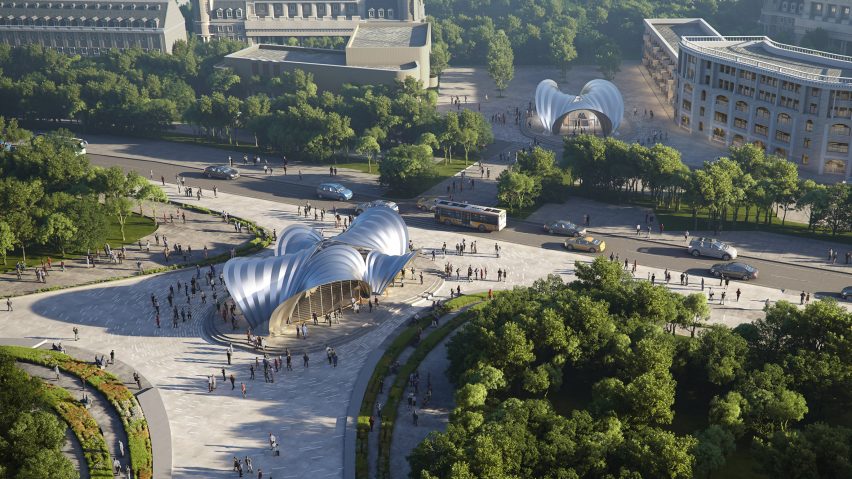
Zaha Hadid Architects begins construction on Ukrainian metro stations
British firm Zaha Hadid Architects has begun construction on three new stations for the Dnipro Metro in Ukraine as part of a four-kilometre line extension.
The trio of Zaha Hadid Architects-designed stations — Teatralna, Tsentalna and Muzeina – form part of the metro line extension in the city of Dnipro that first broke ground in 2016.
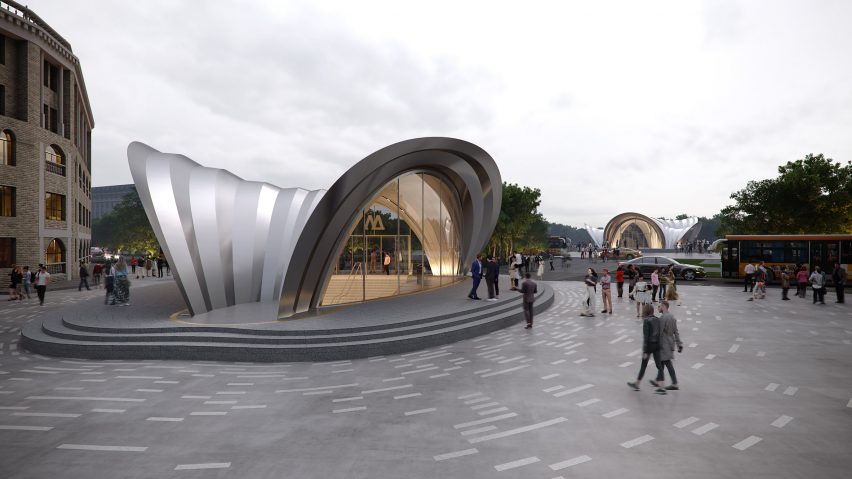
The stations are set to open in 2025 and will run linearly through the city nearby the Dnieper River.
Once complete, the extended line will connect the city centre, Dnipro-Holovnyi train station, businesses, education and cultural institutions with Dnipro's eastern neighbourhoods.
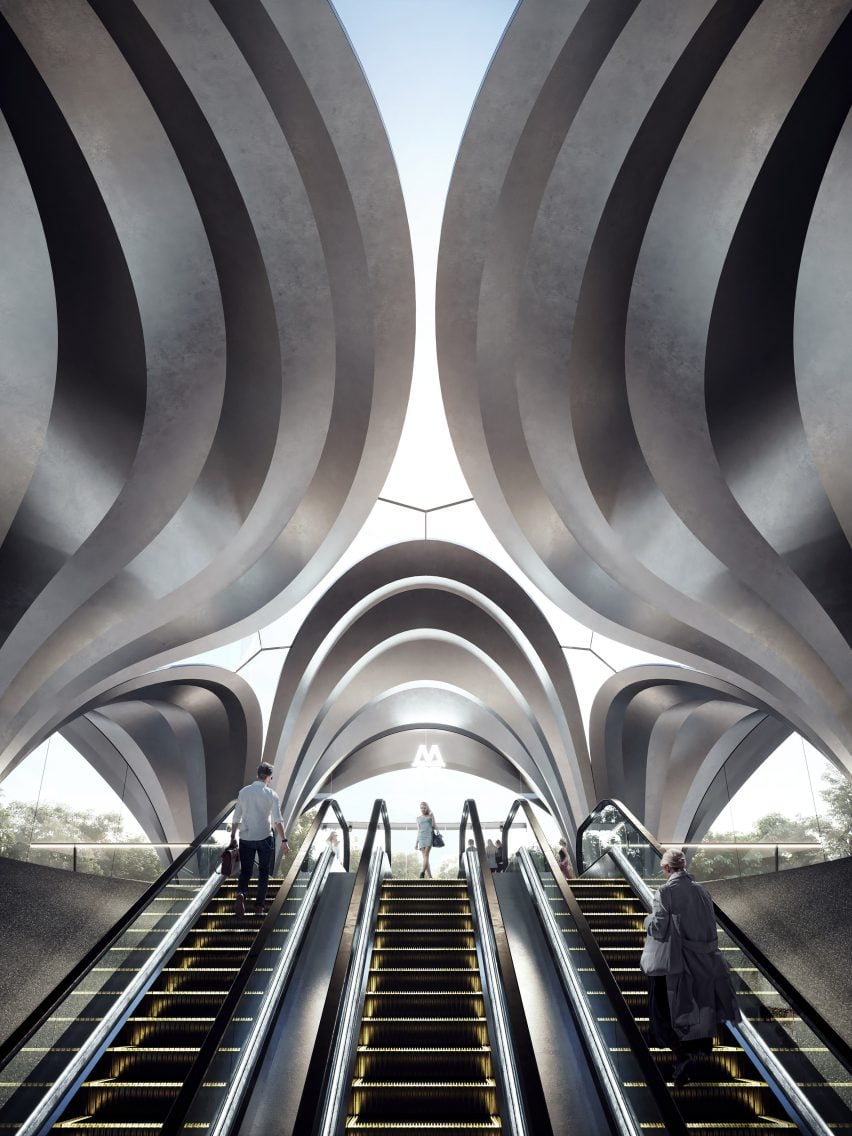
On ground level, each station will take shape as a visually connected family of sculpted shell pavilions, constructed from recycled steel sourced locally from the city.
Visuals show the entrances to the stations as undulating welded steel forms that rise and arch from newly designed, landscaped public plazas that aim to centre the entrance pavilions as landmarks.
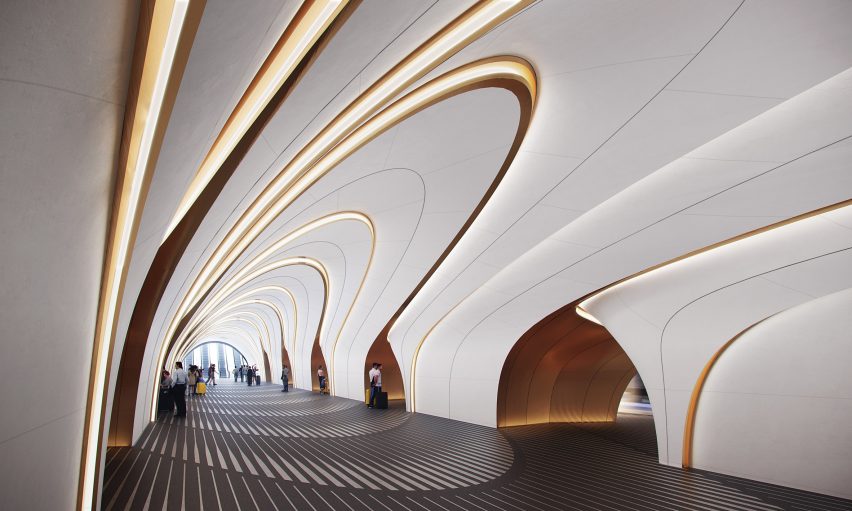
"The city of Dnipro has a long history as a centre of excellence in engineering, metallurgy and manufacturing," said Zaha Hadid Architects.
"These rich traditions are echoed in the welded steel entrance pavilions of the city's new metro stations."
Inside the stations, the ticket halls, metro platforms and corridors will all have a similarly sculptural look.
Stretches of lighting will undulate between and across curved white panelling that covers and arches across the ceilings and walls.
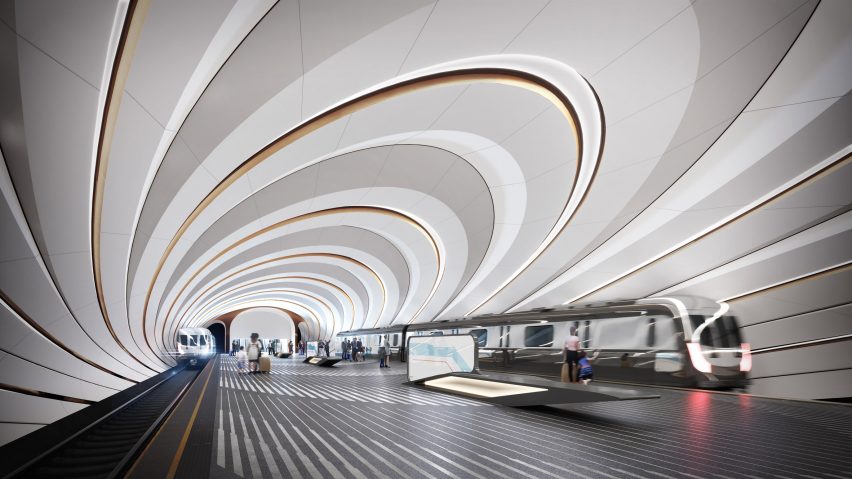
"The design of the ticket halls is unique to each station while the interior concourses, corridors and platforms share a cohesive formal and spatial logic that gives the Dnipro Metro a strong identity," said the practice.
"Defined by concepts of intuitive navigation, the interiors are designed to orientate and direct passengers through each station while enhancing their experience to ensure safe, comfortable and enjoyable transport across the city."
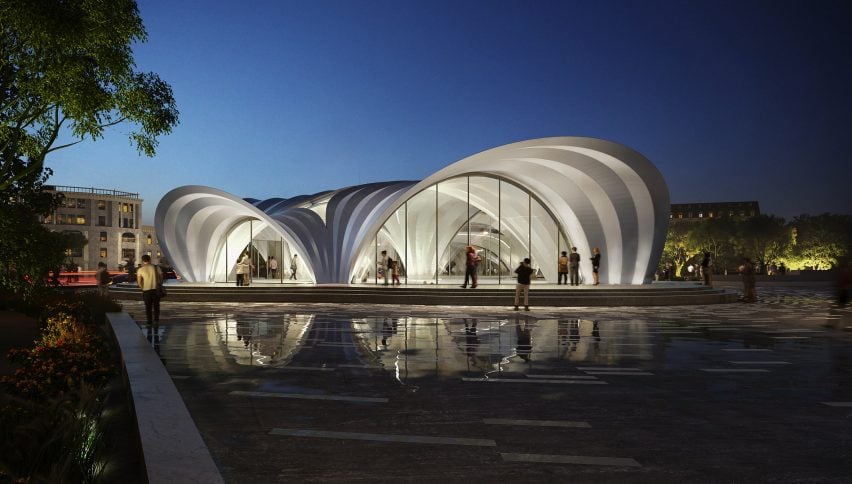
The project forms part of the city's ongoing plans to upgrade its transport systems, while also reducing traffic congestion in its central neighbourhoods.
It will also provide residents and visitors with easy access from the city centre and eastern areas to Dnipro's parks, beaches and leisure facilities along the banks of the river.
Zaha Hadid Architects, now led by Patrik Schumacher, is currently working on several other transport infrastructure projects in the region.
They include a high-speed-train station in Tallinn and the Klenoviy Boulevard Station 2 in Moscow.
Project credits:
Architect: Zaha Hadid Architects
Design: Patrik Schumacher
ZHA project director: Manuela Gatto
ZHA project architect: Yevgeniya Pozigun
ZHA project team: Seungho Yeo, Tommaso Casucci, Mark Winnington, Elena Scripelliti, Federico Borello, Garin O’Aivazian, Veronica Erspamer, Branko Svarcer, Catherine McCann, Evgeniya Yatsyuk, Olga Yatsyuk, Jose Pareja Gomez, Jung Yeon Kwak, Li Jin, Nicolas Turchi, Shajay Bhooshan, Vishu Bhooshan, Aiste Dzikaraite, Veronika Ilinskaya, Houzhe Xu
Client: Dnipro City Council
Contractor: Limak Insaat Sanayi Ve Ticaret A.S. [Turkey]
Structures: Schlaich Bergermann Partner SBP [Stuttgart]
Facade engineering: Eckersley O'Callaghan EOC [London]
Architectural lighting: Office for Visual Interaction Inc. [New York]